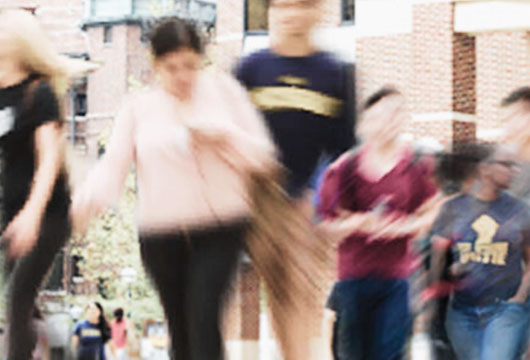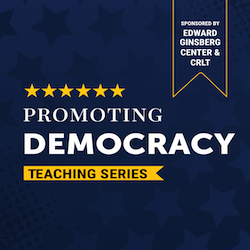Sponsored by the Office of the Provost, CRLT, and the University Library
The winners were recognized at the 15th annual Enriching Scholarship event on May 7, 2012.
The five winning teaching innovations:
- Experiencing "True Engineering" Earlier: Learning Concepts by Teaching to High School Students View poster
Lola Eniola-Adefeso (Chemical Engineering) - Better Than Expected: Using Tailored Communication to Optimize Learning View poster
Tim McKay, David Gerdes, and August Evrard (Physics)
Professors McKay, Gerdes, and Evrard are accepting this award on behalf of the team: E² Coach tailoring designer Kate Miller and technical lead Jared Tritz. - High Return on Faculty Investment: Addressing Diverse Student Needs in Large Lectures through Screencasting View poster
Joanna Mirecki Millunchick (Materials Science and Engineering)
Professor Millunchick is accepting this award with her collaborators: Tershia Pinder-Grover and Katie Green. - Co-Creative, Immersion-Based Design for Global Health View poster
Kathleen Sienko (Mechanical Engineering and Biomedical Engineering) - Teaching Smarter Not Harder: Improving Students' Close Reading Skills Through Interactivity View poster
Theresa Tinkle (English Language and Literature)
Experiencing "True Engineering" Earlier: Learning Concepts by Teaching to High School Students
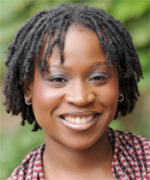 |
Assistant Professor Lola Eniola-Adefeso (Chemical Engineering/CoE) Student Comments: “The ChE 342 project was one of my first experiences of true engineering. Unlike the prior courses that explained the theory, this project brought science to application.”“Rather than performing easy science experiments, “we were to demonstrate a complex and intriguing physical phenomenon, explain it with math and engineering principles, and connect it to the real world.” “The design of the demonstration required critical thinking about how any number of complex topics could be condensed down to a simple, quick, inexpensive, and safe demonstration that would both captivate and educate a high school audience.” “Being able to explain a concept to somebody else, especially somebody who has minimal background knowledge of the topic, is the ultimate test of one’s understanding of that concept.” |
Better Than Expected: Using Tailored Communication to Optimize Learning
 |
 |
 |
Arthur F. Thurnau Professor Tim McKay (Physics and Astronomy/LSA) Arthur F Thurnau Professor David Gerdes (Physics/LSA) Arthur F Thurnau Professor August Evrard (Physics and Astronomy/LSA) |
|
Student Comments: "I really like how it predicts my final grade for the class. Seeing this is really motivational and helps me get down to studying." "I usually read through all of the advice every time I get a notification, and especially before and after exams." "It's motivating to see how successful students in the past approached the course." |
High Return on Faculty Investment: Addressing Diverse Student Needs in Large Lectures Through Screencasting
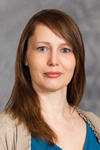 |
Professor Joanna Mirecki Millunchick Student Comments: "The different forms of information made available to the students really enhanced my ability to learn the material." "The animations and photos really help illustrate key concepts." "I don't think I've ever taken a class where the instructor does all they can to make sure the student doesn't have any lingering misconceptions." "Essentially, the screencasts mimic the interaction that would occur if problems were discussed with [the professor] one on one." |
Co-Creative, Immersion-Based Design for Global Health
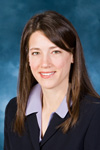 |
Assistant Professor Kathleen Sienko (Mechanical Engineering and Biomedical Engineering/CoE) Student Comments: "It was truly a transformative experience, and I consider it one of the best investments of my time as an engineering student at Michigan. In little more than 6 months, participants have the chance to identify a unique design challenge, travel to a foreign country, develop an innovative device, and fully engage in the design process." "I learned how to design a product well, but also took away an extreme appreciation for the capacity that a well-engineered product can have on society." "Learning how to interact with midwives, physicians, and patients to conduct a needs assessment and obtain user requirements is an incredibly useful skill, and one that I would not have been able to develop to the same extent in any other course." "I am still incredibly proud of the work that I did during that class and the success it has since garnered. We successfully published the work we did during senior design, a relatively uncommon occurrence for undergraduate students and even spun the technology off into a startup company." |
Teaching Smarter Not Harder: Improving Students' Close Reading Skills Through Interactivity
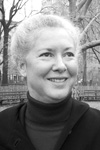 |
Arthur F. Thurnau Professor Theresa Tinkle Student Comments: In a hall “filled with more than 50 students, every single one showed complete engagement with material that was truly difficult, but was made amazingly accessible.” “By the end of the first class…all 80 students [were] performing impassioned close readings of Chaucer and roaring with laughter at the meatier bits of wit.” “Improving our skills of close reading – something that is often hard to learn even through one-one-one engagement – was accomplished stunningly, even in a lecture hall of so many students.” “Lecture was constantly a place where we as students were given a genuine role in the learning process.” |
For questions about the Teaching Innovation Prize, email Provost'[email protected]
- Log in to post comments
- 20 views


